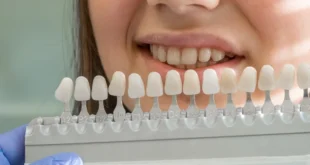Baby Teeth
Babies’ first teeth, commonly known as «baby teeth» or «primary teeth,» play a crucial role in a child’s development and overall health. Here’s what you need to know about baby teeth, from when they emerge to how to care for them properly.
Timing of Baby’s First Tooth
Most babies begin to develop teeth between 6 and 12 months of age, although there can be variability in tooth development among infants. Typically, the first teeth start to appear around the age of 6 months, with the lower front teeth, known as lower central incisors, often being the first to emerge.
Introducing Fluoride
Around the age of 6 months, pediatricians often recommend starting fluoride supplementation for babies. Fluoride plays a crucial role in preventing tooth decay by strengthening tooth enamel. It is commonly found in tap water, but for babies consuming mainly bottled water, fluoride supplements may be necessary. Consultation with a pediatrician is recommended to determine the appropriate fluoride supplementation for your baby.
Alleviating Teething Discomfort
Teething can be a challenging time for both babies and parents, as it can cause discomfort and irritability. Signs of teething discomfort include increased drooling, chewing on objects, and irritability. To help soothe teething pain, parents can try massaging the baby’s sore gums, offering cold items such as teething rings or washcloths chilled in the refrigerator, or providing over-the-counter pain relievers like acetaminophen or ibuprofen under the guidance of a pediatrician.
It’s essential to note that certain teething remedies, such as teething tablets containing belladonna, gels with benzocaine, homeopathic teething gels or tablets, and amber teething necklaces, may pose risks and should be avoided.
Dental Care Practices
Establishing good dental hygiene habits early is key to promoting lifelong oral health. Parents should begin brushing their baby’s teeth as soon as they emerge, using a soft-bristled toothbrush and a smear of fluoride toothpaste. As the child grows, the amount of toothpaste can be increased to a pea-sized amount. Parents should supervise and assist with brushing until the child is capable of effectively brushing on their own, usually around age 7 or 8.
Importance of Dental Check-ups
Regular dental check-ups are essential for monitoring the baby’s oral health and addressing any issues early on. Dental care should be incorporated into well-child visits, with the recommendation for fluoride varnish application to help prevent tooth decay. The first dental appointment should be scheduled shortly after the first tooth erupts and no later than the child’s first birthday. Establishing a «dental home» by age one ensures continuity of care and promotes a positive attitude toward dental visits.
In summary, understanding the timing of baby tooth eruption, the role of fluoride, techniques for alleviating teething discomfort, dental care practices, and the importance of dental check-ups are crucial for ensuring the health and well-being of your child’s teeth. By implementing proper oral hygiene habits and seeking regular dental care, you can help your child maintain a healthy smile for years to come.
 Emprendedora en Calgary
Emprendedora en Calgary





